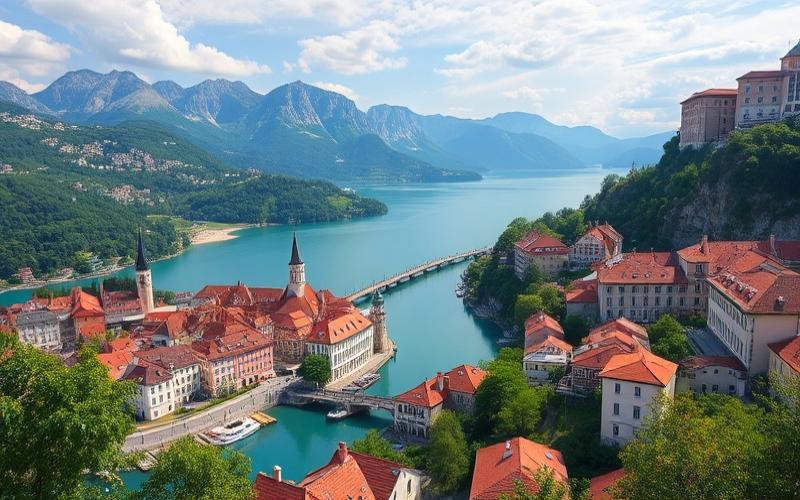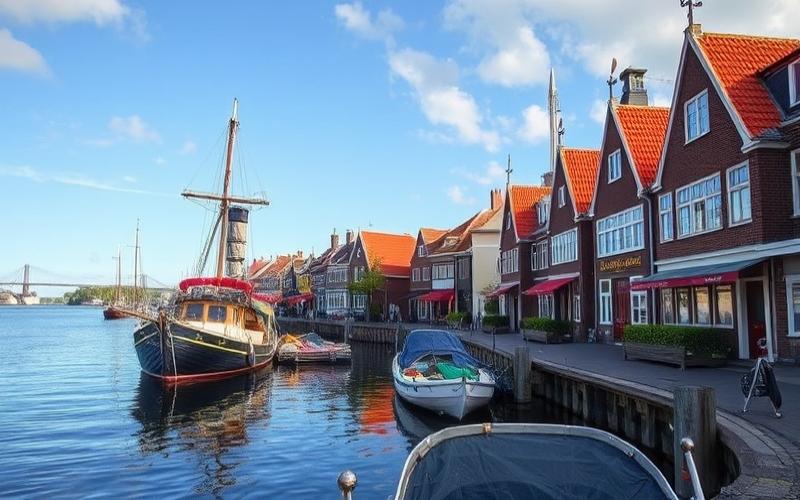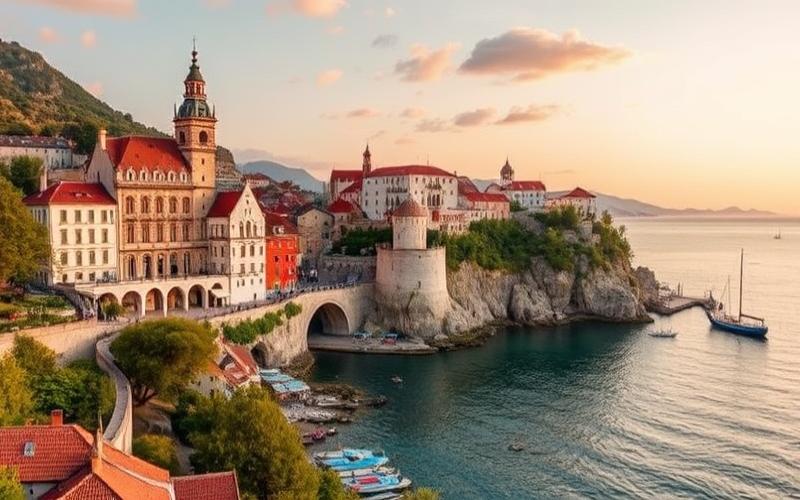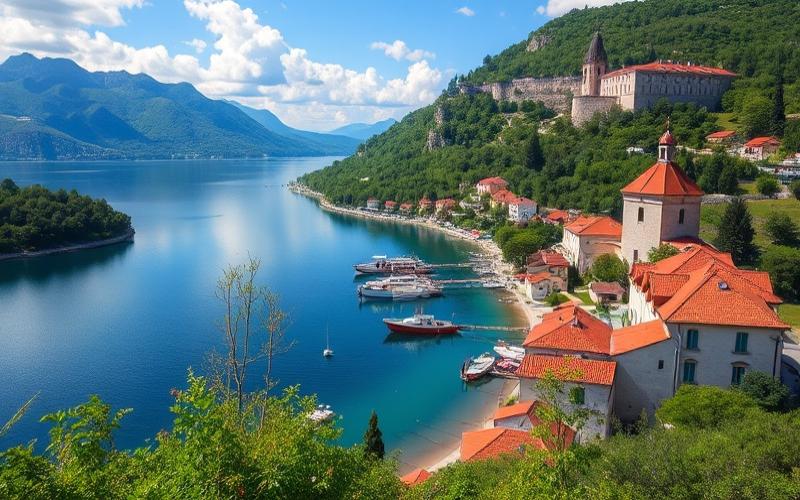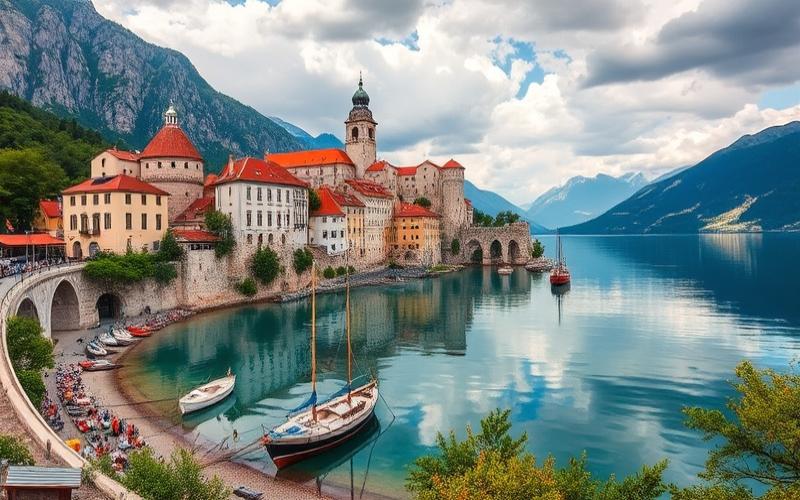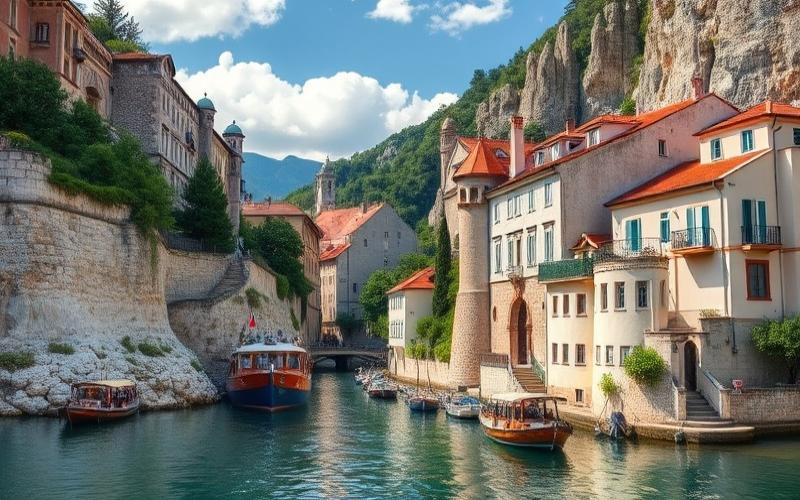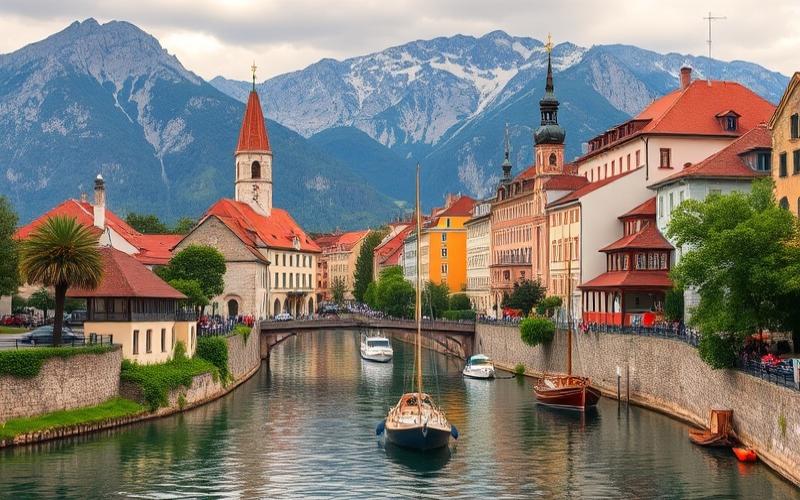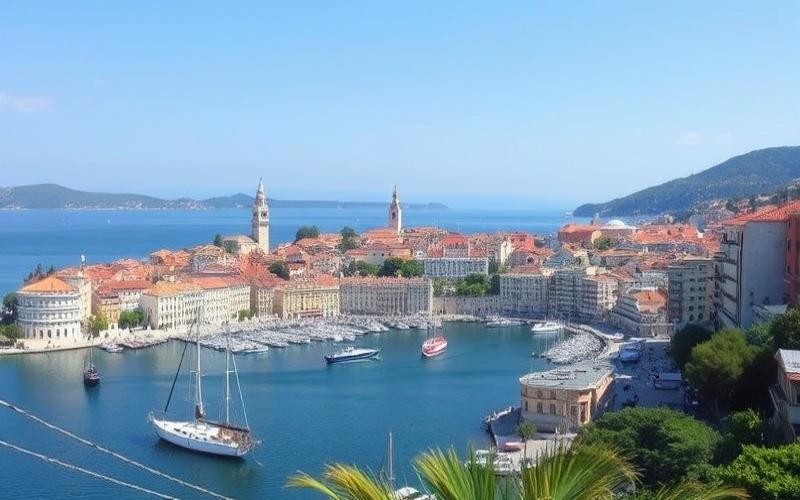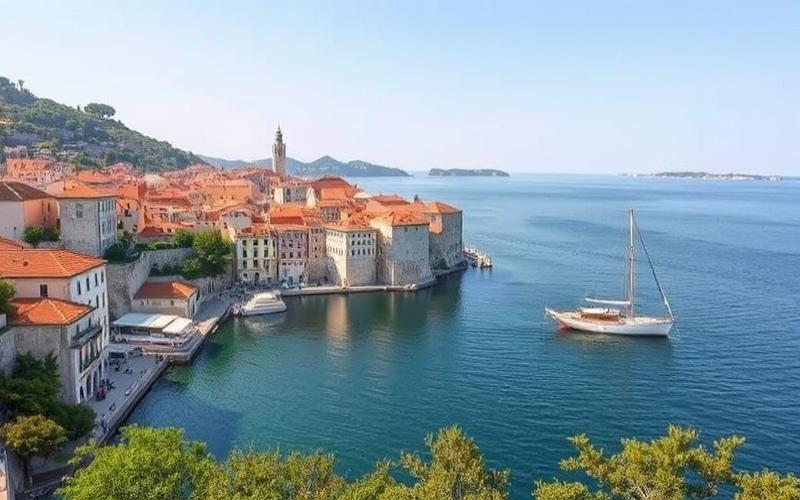
 Published on and written by Cyril Jarnias
Published on and written by Cyril Jarnias
Mandatory Real Estate Insurance in Croatia
In a booming real estate market like Croatia’s, understanding the specifics of mandatory insurance is essential for every investor, whether local or foreign. As the country attracts increasing capital through its picturesque landscapes and pleasant climate, it becomes crucial to navigate the various insurance policies, which not only ensure asset protection but also legal compliance with local regulations.
This article aims to decode the various building insurance contracts while highlighting the most advantageous options, enabling buyers to make an informed and wisely calculated decision.
Good to Know:
Croatia imposes certain mandatory insurance policies for property owners, particularly concerning civil liability and protection against natural disasters.
Specifics of Home Insurance in Croatia
Specifics of Home Insurance in Croatia
In Croatia, home insurance is generally not mandatory for owners, except when required by contract for a mortgage. For tenants, insurance is not legally required but strongly recommended and often requested by landlords to protect their personal property and civil liability.
Types of Coverage Offered
| Standard Coverage | Additional Guarantees (Optional) |
| Fire | Seismic Risks (Earthquake) |
| Water Damage | Floods |
| Theft/Burglary | Electrical Damage |
| Civil Liability | Glass Breakage |
| Storm/Hail/Snow | Legal Protection |
Common risks specific to Croatia include:
- Earthquakes, particularly in certain exposed regions
- Floods, frequent in several areas of the country
Some companies offer specific extensions for these natural risks, which are not always included in the basic package.
Legal Obligations and Recommendations
- Owners: insurance not mandatory except for bank clauses; highly recommended to protect real estate assets.
- Tenants: no strict legal obligation, but insurance is often required by the landlord.
- Civil liability insurance is generally included in multi-risk home insurance.
Criteria Considered by Croatian Insurers to Set Premiums
- Value of the insured property (building and contents)
- Geographical location (seismic or flood risk zone)
- Type of dwelling (single-family home/apartment)
- Level of home security (anti-theft systems, alarms)
- Living area
- Amount of chosen deductibles
Comparison with Other European Countries
| Criterion | Croatia | France/Germany |
| Legal Requirement | Rarely mandatory | Mandatory for tenants in FR |
| Premiums | Generally lower | Higher in major cities |
| Earthquake/Flood Coverage | Optional/high frequency | Optional or automatic |
Coverage against natural disasters is more regularly subscribed to in Croatia than in some other European countries where these events are less frequent.
Practical Tips for Expatriates
- Check if your French or international contract temporarily covers your setup before taking out a local policy.
- Request an English/Croatian translation of the contract if necessary.
- Declare all specific features of the insured property: cellars, separate garages…
- Prepare a detailed and itemized inventory of movable property; this speeds up any compensation process.
- Be aware of sometimes lengthy administrative delays: allow for a buffer before actual move-in.
To facilitate your procedures:
- Research the local reputation of insurers; prioritize those with English/French-speaking customer service if needed.
- Always compare multiple quotes as there are few universal standard contracts.
- Pay attention to the explicit inclusion or exclusion of earthquake/flood guarantees based on your residence location.
In Croatia, the absence of legal obligation does not exclude natural risks or those related to common theft/damage. Appropriate insurance is therefore highly recommended for both residents and expatriates.
Good to Know:
In Croatia, home insurance is not legally mandatory but strongly recommended, especially for owners. Standard policies generally cover fires, storms, and water damage, while additional coverages prove crucial against earthquake and flood risks, common in the country. Insurers assess premiums based on location, age, building size, and exposure to seismic risks. Compared to some European countries, premiums may be more affordable but with less extensive coverage. Expatriates should pay attention to Croatian cultural and administrative differences, such as the need to translate their property documents, and it is advisable to consult a local broker to navigate the specifics of the Croatian insurance system.
The Importance of Civil Liability for Property Owners
Civil liability refers to the legal obligation for any person to repair damages caused to others due to their fault, negligence, or the use of their property. For property owners, it involves compensating for harm suffered by third parties (neighbors, passersby, tenants) resulting from maintenance defects, imprudence, or accidents related to their real estate property.
Why is Civil Liability Crucial for Property Owners?
- Protect one’s assets against the financial consequences of damages caused to others.
- Prevent costly disputes and legal recourse.
- Meet legal obligations, particularly in condominiums or in certain countries.
Examples of situations involving a property owner’s civil liability:
- A passerby falling due to poorly maintained pavement in front of the building.
- Water damage from their apartment affecting the neighborhood.
- Falling facade element injuring a third party.
Specifics of Civil Liability in Croatia
In Croatia, property owners’ civil liability is regulated by laws that impose:
- A duty to maintain and secure the real estate property.
- An obligation to repair damages caused to third parties (material or bodily).
- For condominium buildings, the legal obligation to take out civil liability insurance covering common areas and damages to third parties.
Legal Obligations for Property Owners in Croatia:
| Property Type | Civil Liability Insurance Requirement | Coverage Details |
|---|---|---|
| Condominium Apartment | Yes | Common areas, damages to third parties |
| Single-Family Home | No, but highly recommended | Damages to neighbors, passersby, etc. |
| Rental Building | Yes | Tenants, visitors, external damages |
Common Risks for Property Owners:
- Fire, explosion, or water damage affecting third parties.
- Falling objects, slips, structural defects.
- Electrical or gas problems causing accidents.
Importance of Adequate Coverage:
- Without insurance, the owner must personally bear all repair and compensation costs.
- Sufficient coverage protects assets and ensures peace of mind against unforeseen events.
Comparison of Civil Liability Insurance Policies in Croatia
| Insurance Policy | Coverage Scope | Concerned Parties | Compensation Cap | Frequent Exclusions |
|---|---|---|---|---|
| Condominium Insurance | Common areas, third parties | Neighbors, passersby | High | Intentional faults |
| Non-Occupant Owner Insurance | Building damages, third parties | Tenants, visitors | Medium to High | Own property damages, hidden defects |
| Standard Home Insurance | Included civil liability | Accidentally harmed third parties | Medium | Professional damages |
Financial and Legal Benefits of Good Coverage:
- Coverage of legal fees and compensation costs.
- Preservation of real estate asset value.
- Legal security against victim claims.
- Better attractiveness of the property for rental or sale.
Choosing insurance with good civil liability coverage guarantees the financial and legal protection of the owner against unforeseen consequences related to their real estate property.
Good to Know:
Civil liability is essential for property owners as it covers damages caused to third parties by a real estate property. In Croatia, owners have a legal obligation to take out such insurance, especially to face various risks like domestic accidents that could affect neighbors or passersby. For example, a piece of roofing falling on a car can lead to high costs. Available insurance in Croatia offers different coverages, some even include protection against water damage or fires. Comparing these policies is crucial, as comprehensive coverage not only offers peace of mind but also financial benefits by reducing the risk of unexpected expenses during legal disputes. Choosing insurance with solid civil liability coverage helps avoid disastrous financial repercussions in case of a claim.
Comparison of Coverage for Rental Risks in Croatia
The main insurance companies in Croatia offer several types of coverage for rental risks, tailored to the needs of owners and tenants. These coverages generally include:
- Material Damage: Protection against property damages (fire, flood, storm, earthquake).
- Civil Liability: Coverage for damages caused to third parties or their property.
- Rent Default: Compensation for the owner in case of non-payment by the tenant.
- Damages Caused by the Tenant: Reimbursement or repair following intentional or accidental damages.
Here is a comparative table summarizing typical available offers:
| Coverage Type | Risks Covered | Annual Premium Level (€) | Deductible (€) |
|---|---|---|---|
| Material Damage | Fire, flood, storm | 80 – 200 | 100 – 500 |
| Civil Liability | Damages to third parties | 50 – 120 | Variable (often low) |
| Rent Default | Non-payment | 150 – 350 | First month not covered |
| Tenant Damages | Intentional/accidental damages | 120 – 300 | Based on damage assessment |
Concrete example:
A Croatian owner who subscribed to a “multi-risk” policy with a major national company receives full compensation for a fire claim up to the total insured value (deductible set at €250). However, for rent default due to the tenant’s job loss, only part of the amount is reimbursed after deducting one unpaid month. Comparatively, some low-cost insurance explicitly exclude damages related to natural disasters and impose a higher deductible.
Essential criteria when choosing insurance:
- Level and actual extent of guarantees (inclusion/exclusion of natural disasters)
- Maximum insured amount vs actual property value
- Deductible applied per claim
- Terms and speed of compensation
- Reputation and financial strength of the insurer
Legal specifics unique to the Croatian market:
– Regular policy updates are strongly recommended to keep up with property valuation.
Croatian property owners are advised
– To perform exhaustive photo documentation before any rental
– To combine standard home insurance with civil liability to maximize their protection
In Croatia, there is also particular emphasis on coverage against natural risks such as earthquakes, strong winds, floods. Some companies include these clauses in their standard policies; therefore, it is always necessary to carefully examine what is included.
Comparative study between two policies:
An apartment rented in the historic center benefits from an international insurer:
- Annual premium: €180
- Coverage: material damage + civil liability + legal protection
- Deductible: €300
The same property insured with a local provider offers:
- Annual premium: €110
- Limited coverage mainly for common damages (excludes earthquakes/floods)
- Deductible: €450
This differential illustrates that one should not limit themselves to price but analyze each contractual clause point by point so that the insurance truly meets the intended risk profile.
Good to Know:
In Croatia, rental insurance offers various coverages for rental risks. The main insurance companies provide policies covering material damage, rent default, and damages caused by the tenant. Premiums vary by coverage type, with higher deductibles often associated with reduced premiums. Tenants and owners should consider coverage limits and specific exclusions of each company. For example, some insurance includes additional protections like civil liability, which can be crucial for valuable properties. Due to Croatian legal requirements, it is advisable to check if policies cover authorized renovations or structural modifications. A case study showed that owners in Zagreb prefer comprehensive coverage to minimize financial risks, while on the coast, tenants favor low-premium policies for short-term rentals.
Disclaimer: The information provided on this website is for informational purposes only and does not constitute financial, legal, or professional advice. We encourage you to consult qualified experts before making any investment, real estate, or expatriation decisions. Although we strive to maintain up-to-date and accurate information, we do not guarantee the completeness, accuracy, or timeliness of the proposed content. As investment and expatriation involve risks, we disclaim any liability for potential losses or damages arising from the use of this site. Your use of this site confirms your acceptance of these terms and your understanding of the associated risks.



